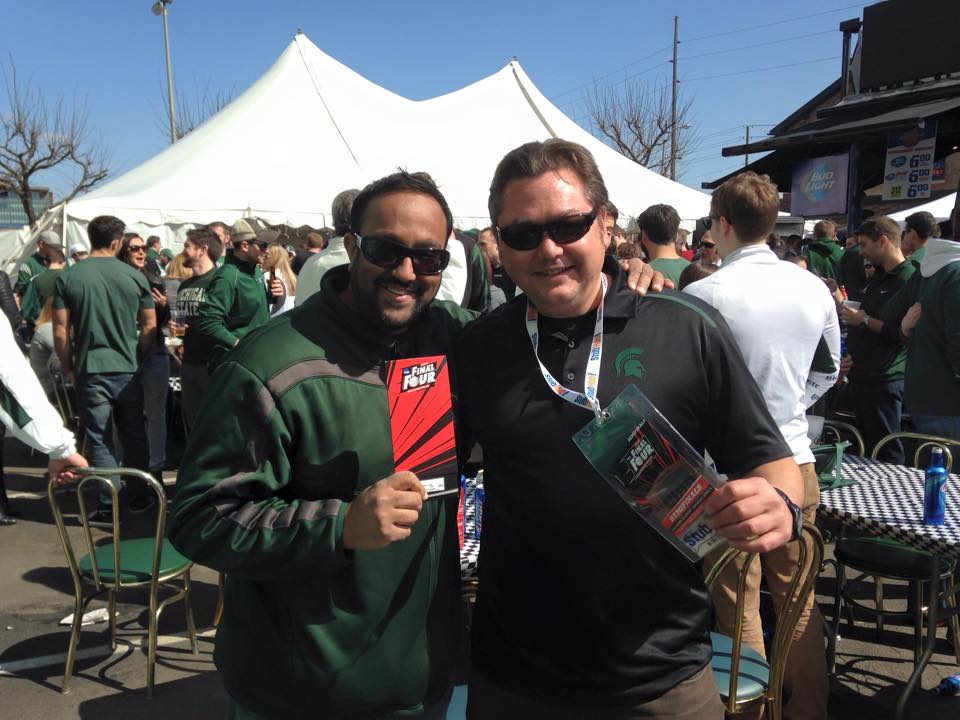JMC Alumnus Shares Insights into Role in Federal International Trade Administration
May 26, 2021

Salim Bhabhrawala (IR ’98) was recently named the Critical Minerals Sector Lead at the United States Department of Commerce’s International Trade Administration. He has been assigned to the taskforce working on President Biden’s Executive Order to secure domestic material supply chains, such as those for advanced batteries in electric vehicles.
You’ve built an impressive array of experience at the U.S. Department of Commerce. What initially drew you toward a role in the federal government? Is it the same as what keeps you motivated and engaged today?
Since the day I moved into my Case Hall dorm room on 5 North in 1994, I’ve always had interests in both public service and international economics. Commerce’s International Trade Administration is one of the few bureaus in the federal government that allows me to continue working in both these areas together. It is the current global chaos within international trade that keeps me motivated. Every month is a new adventure, whether it is the instability of U.S. – China trade relations, sanctions policies on Russia, the tariffs imposed on steel and aluminum, the formation of new trade alliances such as the United Kingdom post-Brexit, and the renewal of previous coalitions such as USMCA (formerly NAFTA). I am currently working on addressing U.S. supply chain vulnerabilities related to critical minerals and rare earths, so the trade challenges and opportunities are endless.
Your roles have demanded that you become an expert on a quite a wide array of issues! What are some of the more unexpected areas you’ve been immersed in over the course of your time at the Dept. of Commerce?
Not in a million years did I think that my Geology 101 class at MSU would come in handy within the field of international trade, but it did. I’ve had to quickly become acquainted with rocks and minerals in my new role as the Critical Minerals Sector Lead at Commerce. One of the most unexpected facts I’ve learned on the job is that rare earth elements – which are crucial to the manufacture of many hi-tech products - are not rare. These minerals are actually quite abundant in nature, but extremely difficult to refine and process due to environmental challenges. China supplies 85-90% of the world’s rare earth elements, and as they continually threaten to restrict supply of these critical minerals to other countries, the United States must look both domestically and towards developing commercial ties with its closest foreign allies for future supply.
What are some takeaways from your time at JMC that you still lean on today?
Writing, writing and more writing. My advice to every student at JMC is to commit yourself to the process of being a better writer. I’ll never forget when Professor Graham “critiqued” my paper on the role of NATO in Eastern Europe, or when Professor Racioppi suggested significant “modifications” to my analysis of Czechoslovakian Nationalism. I’m grateful for these academic moments because they taught me that in order to succeed, I needed to be more articulate on paper. I encounter many young professionals that view writing as a soft skill that isn’t crucial for their career development. However, whatever career path future JMC students select, they will likely be typing emails, compiling reports, drafting contracts, and generating memos that need to be written clearly and concisely. I’ve been working in government for 20+ years and I am still striving to be a better writer.
Do you often cross (professional) paths with other Madisonians and/or Spartans?
I was fortunate enough to be mentored by fellow Madisonian Jon Fremont (IR ’96) from our days together in high school, to our time in Case Hall, all the way through to my move to Washington D.C. He currently works for the Government Accountability Office, and we still keep in touch. Our friendship and his advice throughout the years demonstrates the importance of staying connected with the JMC community. That being said, I also run into Madisonians both personally and professionally all the time. I’m often shocked at how many JMC alums have been successful in the federal government, on “The Hill” or as a part of non-governmental organizations. In the greater DC area, I’ve been involved with the Capitol MSU Alumni Association for over 20 years, so many friends and softball teammates are also Spartans. In fact, since my DC car license plates are ”SPARTAN,” I make new green and white friends quite often!

